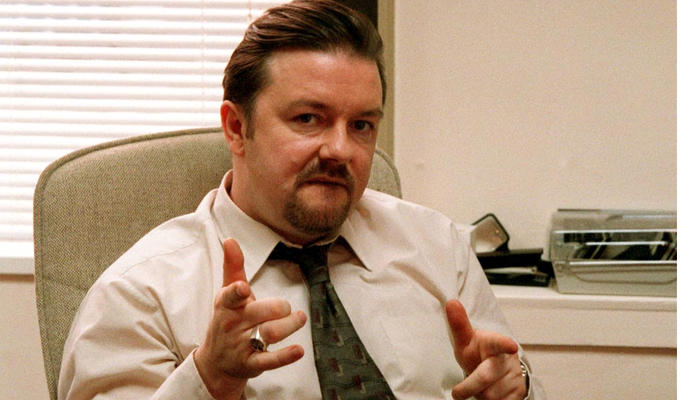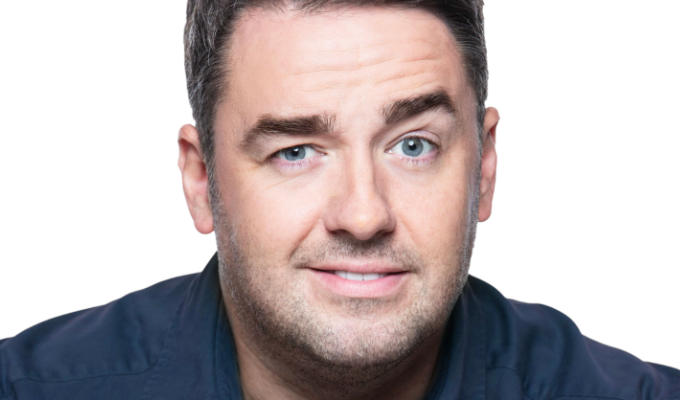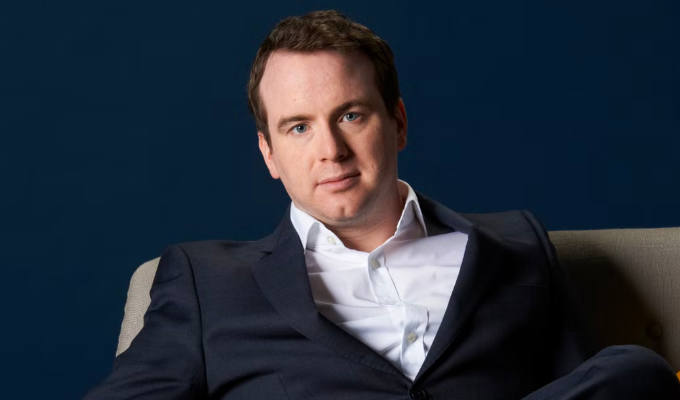 © BBC
© BBC Sitcoms have 'lost their nerve' on grotesque characters
Writer's plea for more larger-than-life personalities
Sitcoms have ‘lost their nerve’ when it comes to putting larger-than-life characters on screen.
That’s the view of writer James Cary, who says that comedies increasingly revolve around realistic, relatable figures rather than bold personalities – and that comes at the expense of jokes.
Speaking on an episode of his Sitcom Geeks podcast recorded at the Craft Of Comedy conference in Llandudno yesterday, the Miranda and Bluestone 42 writer said the best comedy characters ‘need to be turned up to 11’.
‘We wonder if it’s going to make things unrealistic if we make them too extreme,’ he said. ‘But there are people in real life – and in your own family – that are extreme.
‘The example I always use is Brian Clough. Brian Clough is not a fictional character! So comedy is competing with people like that.
‘Reality TV understands the audience has a capacity for larger-than-life characters and maybe in comedy we’ve lost our nerve.
'It doesn’t able to be a big, brightly-lit studio sitcom; David Brent in the small naturalistic situation of The Office is an insufferable larger-than-life character. ’
Though of course Britain's most successful current sitcom, Mrs Brown's Boys, features both an extreme cenral character and is very proudly an audinece sitcom.
Cary said the reluctance to portray characters so broadly was especially true of women, where executives tended to get cold feet if female characters were shown as idiotic.
‘Because of gender imbalances of the past there is the tyranny of representation,’ he said. ‘So if there’s one female character they have to be seen as competent as they represent all women. They can’t be stupid in the same way as men.’
He said one way around the issue was to have several stupid female characters, as Derry Girls does.
Cary and co-host Dave Cohen also offered some other tips to writers working on characters and storylines in here session.
They include:
- Characters should be consistent: what they believe to be true they should always believe to be true.
- When things happen to characters due to external forces, it’s not as believable as when they cause events to happen themselves.
- The key to the comedy is in the ‘character gap’ between who the protagonist thinks they are and how the audience and other characters see them
- Cohen says he uses a thesaurus to help define this. For example the entry for an adjective such as ‘rigorous’ might start with positive synonyms such as ‘meticulous’ but ends with a more negative spin such as ‘nitpicking’. So a character who prides themselves on diligence could be seen as pedantic by others.
- Writers often make the mistake of using lots of dialogue to explain a character, when showing how they react to chaos is a much more direct way to reveal their personalities.
- Think about what characters want, what they really want, and what they actually need, and how all these things are different
- Think about what is is about your character that clashes with the world you’ve put them in. Either have normal people in a mad world or mad people in a normal world.
- Look to the future not the past. No one knows what Geraldine was doing before Dibley, not even the writers. Her backstory doesn’t matter, the comedy comes from the fact she’s trying to be too nice.
- Protagonists should be the ones responsible not just for making things fail, but making the chaos worse because of who they are and what they will or not do.
- Then some moment of self-realisation will bring about an episode’s conclusion, without ruining things for the next installment.
Published: 16 Jun 2018






